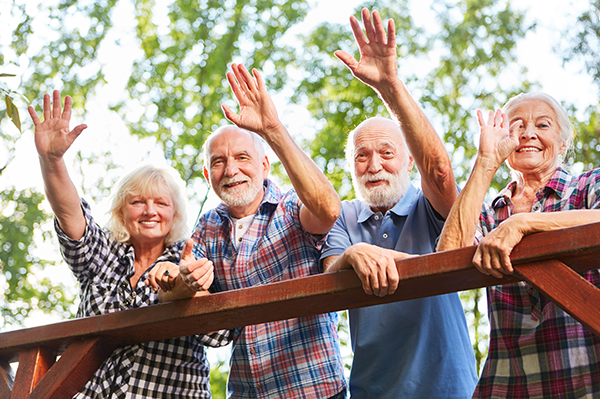
National Preparedness Month, held annually in September, encourages families, businesses, and communities to prepare and plan for disasters and emergencies. In addition to general emergency preparedness, the Maryland Department of Health's Office of Preparedness and Response (OP&R) encourages Marylanders to take steps toward public health preparedness, not only in September, but all year long.
Watch this special video message from Sara Barra, Director of OP&R:
Family Preparedness Tips:
(Source: https://www.ready.gov/september)
Natural disasters, such as hurricanes, tornadoes, and blizzards, may force you to evacuate your home or shelter-in-place at short notice. It is important to know what to do in case of an emergency well before disaster strikes.
Start a Conversation:
Talking about bad things that could happen like a disaster or emergency isn’t always easy. We may think we’re protecting the people we love by avoiding these conversations, but they are important to start taking steps to get ready and stay safe.
Starting a conversation today can help you and your family to take more actions to prepare. By taking simple steps, you can build your preparedness at your own pace:
- Set aside a time when everyone is calm and relaxed.
- It may help to hold the discussions over a set time period, so decisions aren’t rushed, and people feel more comfortable talking about the topic.
- Talk about steps you’ve taken to prepare and encourage others to ask questions about preparedness actions that might work for them.
- Make a plan today. Your family may not be together if a disaster strikes, so it is important to know which types of disasters could affect your area. Know how you’ll contact one another and reconnect if separated. Establish a family meeting place that’s familiar and easy to find.
- Fill out an Emergency Contact Card for each member of your family to keep in their wallet or backpack. Be sure to hang a copy on the fridge and include one in your Emergency Supply Kit.
Watch the video below for more tips on how to create a Family Communication Plan:
Build a Family Emergency Supply Kit:
After an emergency, you may not have access to clean water or electricity. Make sure you are prepared with your own supply of food, water, and other items to last for at least 3 days.
Click
here for a list of basic items to gather for your Family Emergency Kit. Watch the video below for great tips on how to build one:
Medical-Related Items:
- A 3-day supply of medicine, at a minimum. If medications need to be kept cold, have a cooler and ice packs available.
- ID band (full name, contact number for family member/caregiver, and allergies)
- Hearing aids and extra batteries
- Glasses and/or contacts and contact solution
- Medical supplies like syringes or extra batteries
- Information about medical devices such as wheelchairs, walkers, and oxygen including model numbers and vendor.
Documents (Keep physical copies in a waterproof bag and take photos of each document for backup):
- Contact information for family members, doctors, pharmacies and/or caregivers
- List of all medications, including the exact name of the medicine and the dosage, and contact information for pharmacy and doctor who prescribed medicine
- List of allergies to food or medicines
- Copies of medical insurance cards
- Copies of a photo ID
- Durable power of attorney and/or medical power of attorney documents, as appropriate.
Creating an Emergency Plan for Seniors:
Older adults can face greater risks when it comes to the multitude of extreme weather events and emergencies we now face, especially if they are living alone, are low-income, have a disability, or live in rural areas. The first step in preparing for an emergency is creating a plan. Work with your friends, family, and neighbors to develop a plan that will fit your unique needs.

- Choose a contact person who will check on you during a disaster, and decide how you will communicate with each other (for instance, by telephone, knocking on doors). Consider speaking with your neighbors about developing a check-in system together.
- Plan how you will leave and where you will go during an evacuation. If you are living in a retirement or assisted living community, learn what procedures are in place in case of emergencies. Keep a copy of exit routes and meeting places in an easy-to-reach place.
- If you have medical, transportation, or other access needs during an emergency, consider signing up for SMART911, or your local county registry, depending upon which service your area uses to helps first responders identify people who may need assistance right away.
For great preparedness information all year long, be sure to follow OP&R on Twitter and Facebook.

